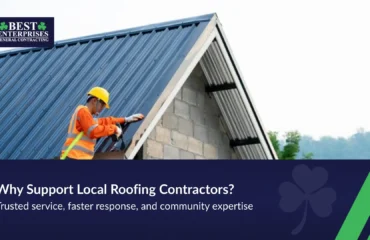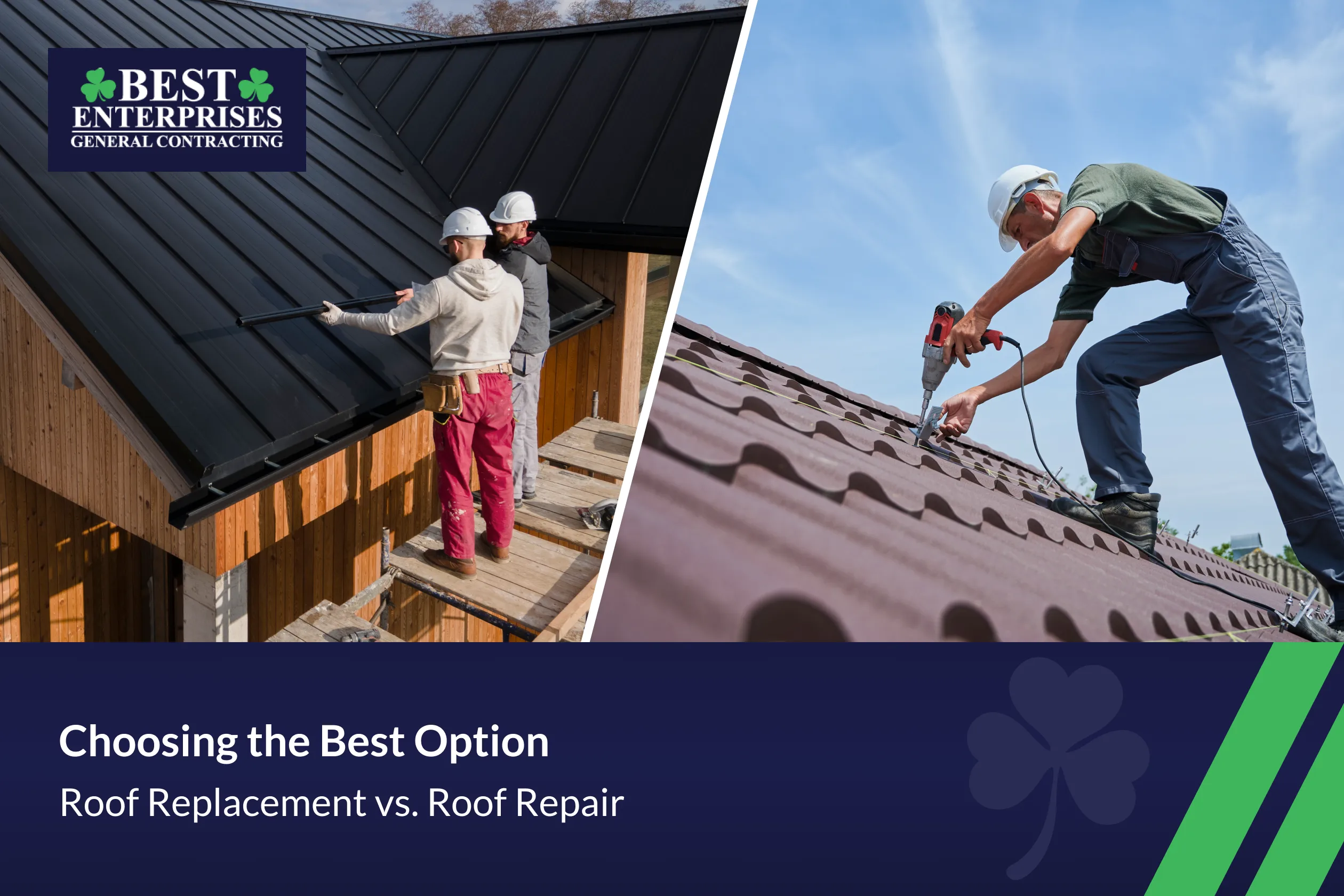
Roof Repair or Replacement: What Delivers More Value?
Deciding between roof replacement vs roof repair is a critical step in maintaining your home’s safety and value. Whether you’re facing storm damage, aging shingles, or frequent leaks, this guide will help you understand the pros, cons, and costs of each option so you can make an informed decision.
This comprehensive guide breaks down everything you need to know to make a smart choice for your home’s protection, energy efficiency, and resale value. From spotting warning signs to understanding costs and benefits, we’ll help you weigh your options confidently. Plus, you’ll get expert tips for roof inspections and maintenance all tailored to your unique situation.
Understanding the Difference: Roof Repair vs. Roof Replacement
When your roof shows signs of wear or damage, it’s essential to know whether a repair will suffice or a full replacement is necessary. Each option serves a different purpose and depends on the age, condition, and extent of the roofing issue.
What is Roof Repair?
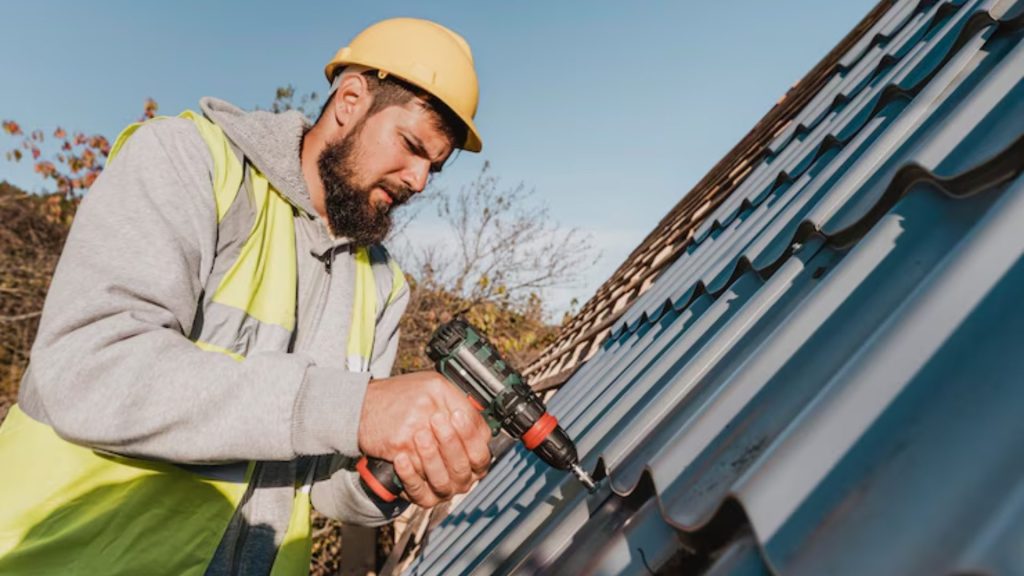
Roof repair refers to the process of addressing isolated problems on an otherwise functional roof. Common repair tasks include replacing damaged or missing shingles, sealing leaks, fixing flashing, and patching small areas impacted by weather or aging.
Benefits of Roof Repair:
- Cost-Effective: Repairs are generally more affordable than full replacements, making them a budget-friendly solution for minor issues.
- Quick Turnaround: Most repairs can be completed in a day or two, minimizing disruption to your home.
- Extends Roof Lifespan: Targeted repairs can help maximize the remaining years of an aging roof.
- Ideal for Localized Damage: If the problem is limited to one area like a small leak or storm damage a repair is often the most efficient option.
What is Roof Replacement?
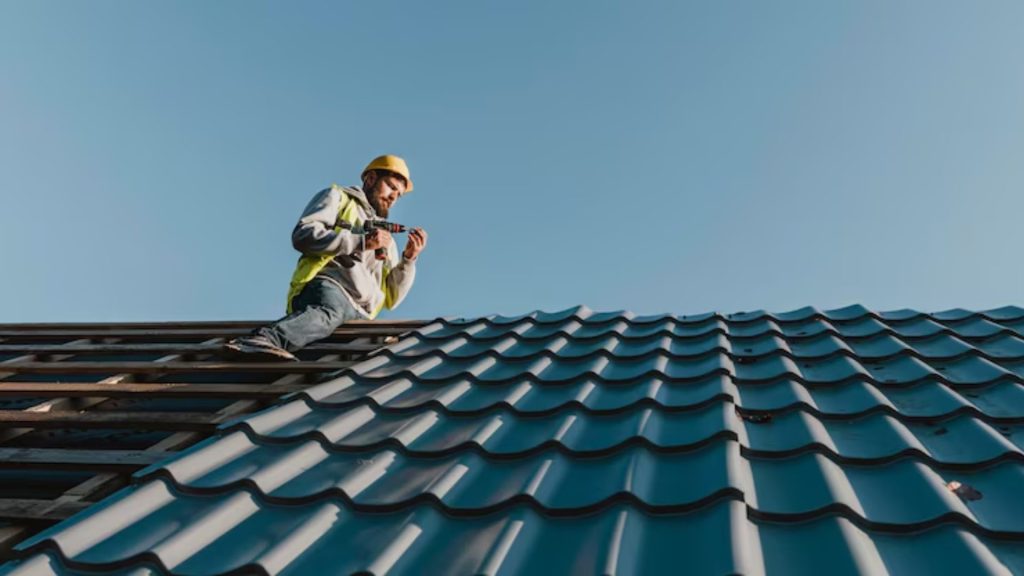
Roof replacement involves removing the existing roofing system down to the deck and installing new materials either due to age, widespread damage, or structural concerns. In some cases, re-roofing (laying new shingles over the old ones) may be an option, depending on local codes and the condition of the existing layers.
Scenarios That Require Roof Replacement:
- Extensive Water Damage or Mold: When leaks go unnoticed or are widespread, moisture can rot the underlying structure and cause mold growth, necessitating a full replacement.
- Roof Age: Most asphalt shingle roofs last around 20–30 years. If your roof is near or beyond its expected lifespan, replacement ensures long-term protection.
- Structural Issues: A sagging roof or compromised decking indicates foundational problems that repairs can’t fix.
- Multiple Repair Attempts: If you’ve had several repairs over the years and issues persist, replacing the entire roof might be more cost-effective in the long run.
- Storm or Hail Damage: Severe weather events can cause widespread shingle loss, granule erosion, or even deck damage, warranting full replacement.
How to Decide: Key Factors That Influence Your Choice
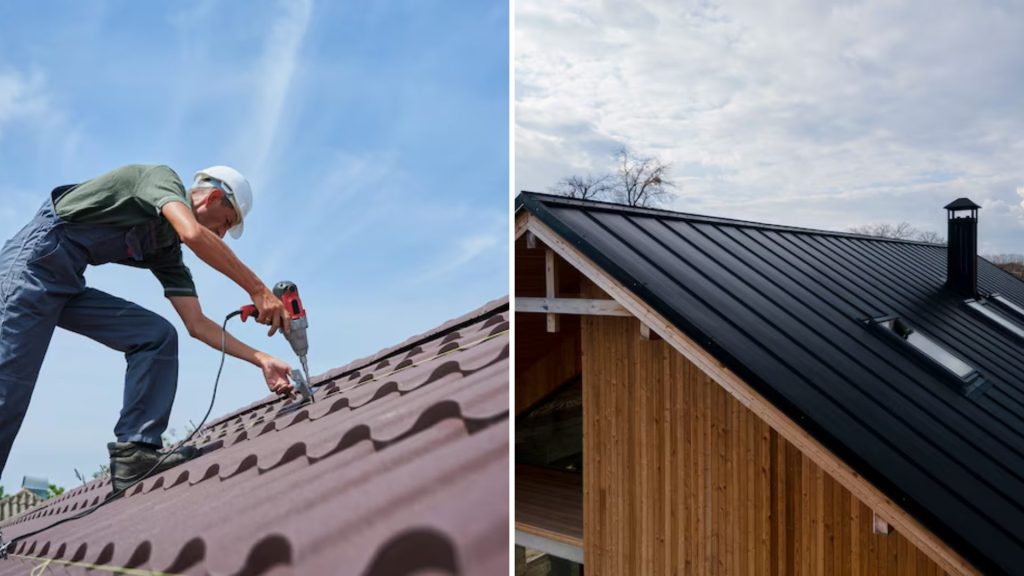
Deciding between a roof repair and a full roof replacement comes down to more than just patching up problems. Here are the key factors to consider when evaluating the best course of action for your home:
1. Age of the Roof
The age of your current roofing system is one of the most critical indicators. Asphalt shingle roofs typically last between 15 to 30 years, metal roofs can last anywhere from 40 to 70 years, and tile or slate roofs may even exceed 100 years with proper maintenance.
If your roof is nearing or has passed its expected lifespan, investing in another repair might only delay the inevitable. In such cases, replacement becomes more cost-effective and ensures long-term protection for your home.
2. Extent and Type of Damage
Not all roof damage is equal. Minor issues like a few missing shingles or small, localized leaks can usually be resolved with quick repairs. However, widespread damage, frequent leaks, water stains across ceilings, or signs of structural sagging suggest deeper problems that repairs can’t solve.
If your roof shows signs of mold growth, water infiltration across multiple areas, or noticeable drooping, it’s a red flag that a replacement is necessary to restore structural integrity and safety.
3. Roof Inspection Results
Hiring a licensed roofing contractor for a professional inspection provides crucial insight. A thorough inspection will evaluate the roof’s structural integrity, ventilation systems, insulation performance, and the presence of moisture or rot.
Based on the results, a contractor can recommend whether targeted repairs are sufficient or if a complete overhaul is needed. Always request a detailed written estimate for both repair and replacement options so you can compare short-term costs with long-term benefits.
4. Budget and Long-Term Home Goals
Your financial situation and future plans for the home will greatly influence your decision. If you’re looking for a budget-friendly, short-term fix especially if you plan to move soon repairs might make more sense. However, if you’re staying in your home for many more years, a roof replacement is a smart investment. It not only reduces ongoing maintenance but can also boost your home’s value, improve curb appeal, and offer stronger protection against future weather events. Think of repairs as a band-aid and replacement as long-term healthcare for your home.
5. Energy Efficiency and Structural Soundness
Old or compromised roofs often contribute to insulation problems, leading to increased energy bills, uneven indoor temperatures, and a less comfortable home environment. Leaks or poor ventilation can also encourage mold and mildew, posing health risks.
A new roof offers modern materials and improved insulation that can significantly increase energy efficiency. It helps your home stay cooler in the summer and warmer in the winter, reduces the strain on your HVAC system, and restores the overall structural stability of your home.
Cost Comparison: Roof Repair vs. Roof Replacement
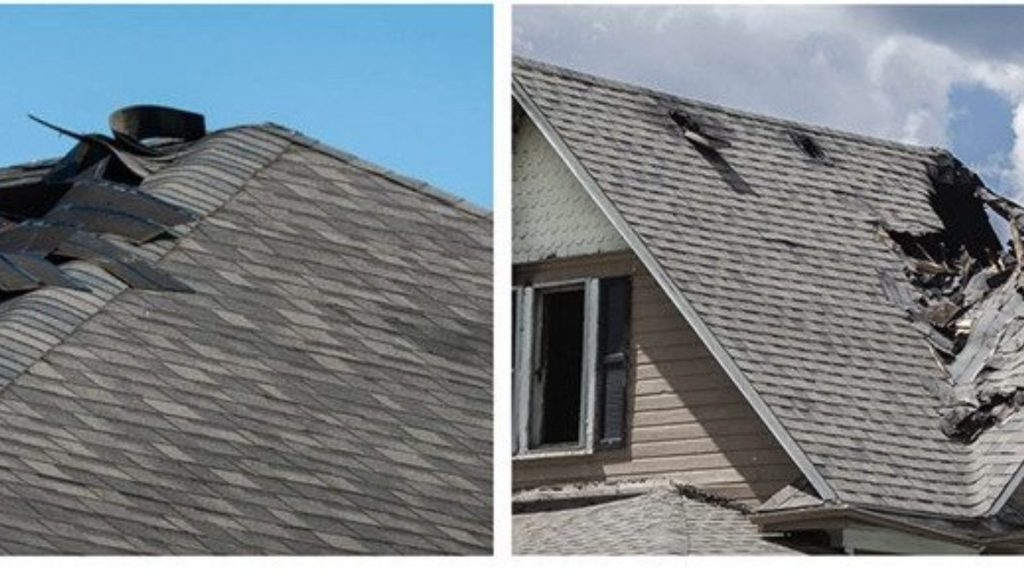
Understanding the cost difference between repairing a roof and replacing it entirely is essential for planning your budget and making the right decision for your home.
National Averages in the U.S.
- Roof Repair: Typically $150 to $1,500 depending on damage severity. Minor shingle replacements or leak patches cost less, while larger repairs involving flashing or decking may cost more.
- Roof Replacement: Usually ranges from $6,000 to $25,000+, depending on home size, roof complexity, and materials (asphalt, metal, tile, etc.).
Key Factors That Influence Roofing Costs
Several elements can affect the total cost of either a repair or a replacement:
- Roof Size and Pitch: Larger roofs or those with steep slopes are more labor-intensive and expensive to work on.
- Material Selection: Asphalt shingles are usually the most budget-friendly, while metal, slate, tile, and wood shakes come with higher material and labor costs.
- Geographic Location: Labor and material prices vary across regions. For example, roofing costs in coastal or urban areas tend to be higher than in rural areas.
- Labor Costs: Hiring experienced, licensed roofing contractors may cost more upfront but ensures better workmanship and fewer issues down the line.
- Permit and Disposal Fees: Depending on local building codes, you may need permits for roof replacement. Also, old material disposal and cleanup can add to the overall bill.
What About Insurance?
In many cases, homeowners insurance may cover all or part of your roofing costs, but only under certain conditions. Most policies provide coverage if the damage is caused by sudden, unavoidable events—such as hailstorms, high winds, fallen trees, or fire. However, general wear and tear or neglect usually aren’t covered.
To increase your chances of receiving coverage:
- Document the damage with photos.
- Schedule a professional roof inspection as soon as possible.
- Contact your insurance provider promptly and file a claim if applicable.
Pro Tip: Even if you’re not sure the damage qualifies, it’s worth having an expert assess your roof and assist with the claims process.
Pros and Cons: Roof Repair vs. Roof Replacement
Making the right decision starts with understanding the benefits and drawbacks of each option. Here’s a detailed breakdown:
Roof Repair
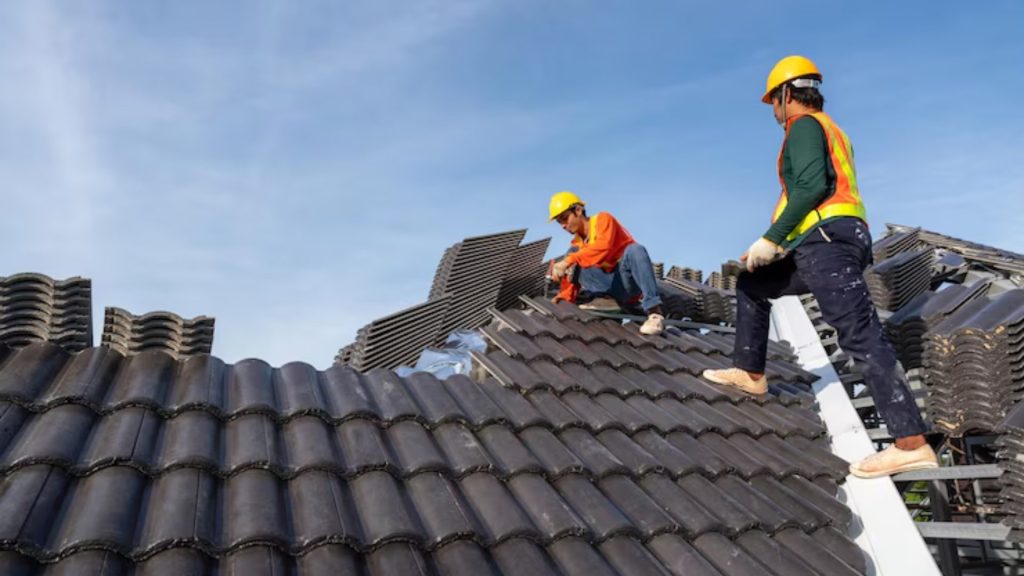
Roof repair is a practical and cost-effective solution when dealing with minor or isolated roofing issues. It allows you to fix specific problems quickly without the expense or disruption of replacing the entire roof. However, repairs are generally temporary and best suited for roofs that are still relatively new or in good overall condition.
Pros of Roof Repair:
- Lower Upfront Cost: Much more affordable than a full replacement, making it a great option for minor issues or tight budgets.
- Faster Completion: Most repairs can be completed in 1–2 days with minimal disruption.
- Extends Roof Life: Helps prolong the lifespan of a relatively new or mid-life roof.
- Targeted Fix: Ideal for addressing isolated problems such as missing shingles or small leaks.
Cons of Roof Repair:
- Temporary Solution: Repairs only offer a short-term fix, especially on aging roofs.
- Recurring Costs: Multiple repairs over time can add up and may end up costing more than a replacement.
- Limited Structural Impact: Doesn’t address hidden structural issues or underlying damage.
- Minimal Efficiency Gains: Little to no improvement in insulation or energy efficiency.
Roof Replacement
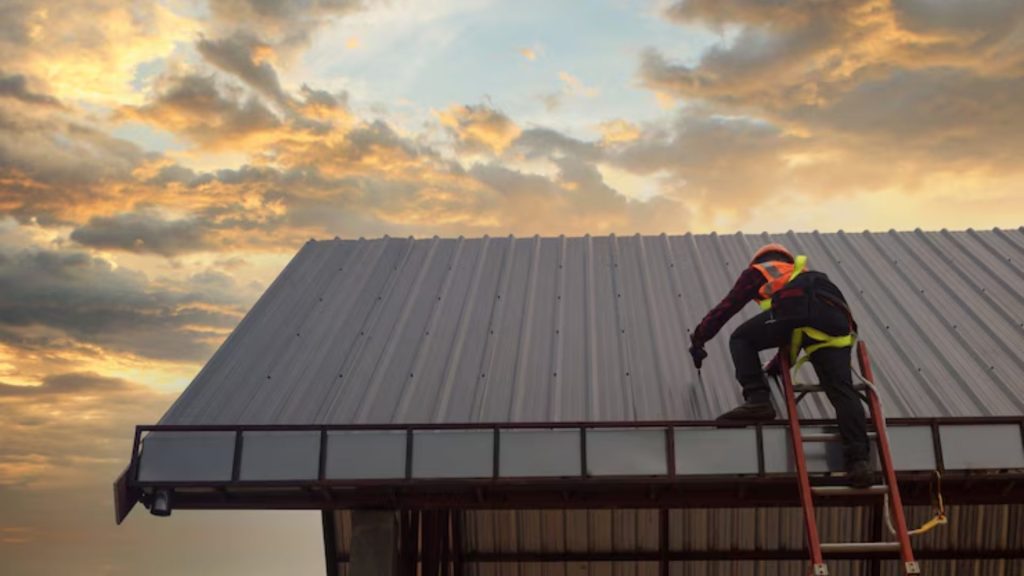
Roof replacement is a more significant investment that offers long-term benefits. It involves removing the old roof and installing a new one, which strengthens your home’s structural integrity, boosts energy efficiency, and increases property value. While the upfront cost and time commitment are higher, a new roof provides peace of mind and protection for decades to come.
Pros of Roof Replacement:
- Long-Term Investment: Provides 20–30+ years of durability and peace of mind.
- Structural Renewal: Allows full inspection and reinforcement of the entire roofing system.
- Boosts Energy Efficiency: Modern materials and insulation can significantly reduce energy bills.
- Increases Home Value: Enhances curb appeal and resale value, making it a smart investment for long-term homeowners.
- Warranty Benefits: New roofs often come with manufacturer and workmanship warranties.
Cons of Roof Replacement:
- Higher Initial Cost: Significantly more expensive than a repair, which may not be ideal for all budgets.
- Longer Project Timeline: Can take several days to a week to complete, depending on size and complexity.
- Permit and Disposal Fees: May require permits and involve costs for removing and discarding old materials.
- Weather Dependency: Scheduling and completion can be affected by bad weather conditions.
Conclusion: Your Roof, Your Investment Make the Right Call
When it comes to roof replacement vs. roof repair, there’s no one-size-fits-all answer. The right choice depends on the age of your roof, the extent of the damage, your budget, and your long-term homeownership goals.
Minor leaks or missing shingles? A repair might be all you need. But if your roof is nearing the end of its lifespan or showing widespread wear, investing in a full replacement could save you money and stress down the road.
The key takeaway? Don’t get a professional roof inspection. It’s the smartest step toward protecting your home’s value, energy efficiency, and structural safety.
Ready to take the next step? Schedule a free roof inspection or estimate today and get expert guidance tailored to your specific situation.


